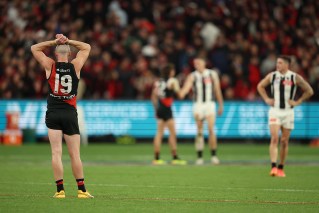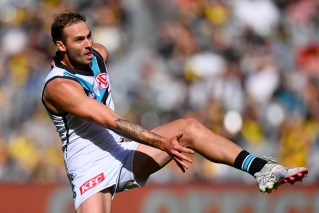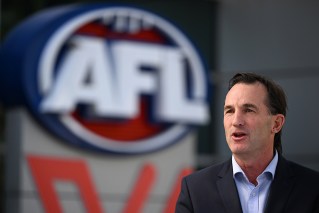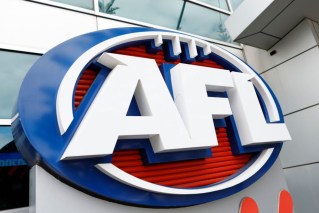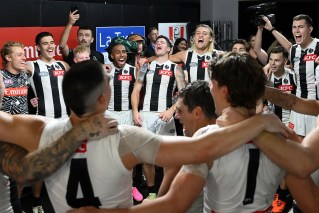Why a women’s AFL comp is a win for equality
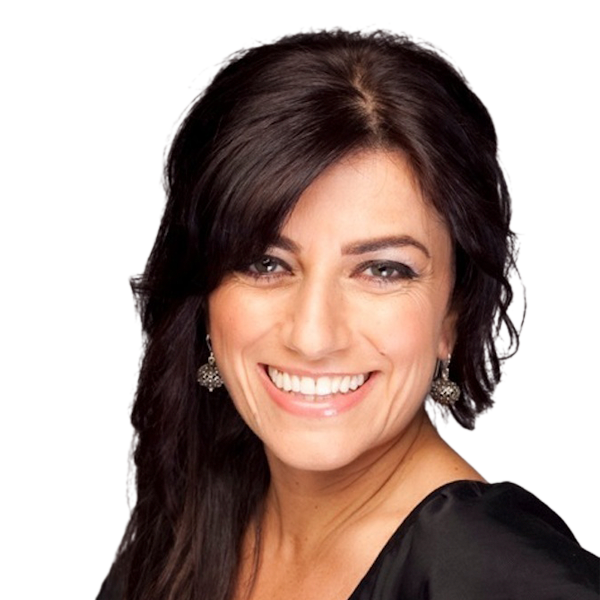
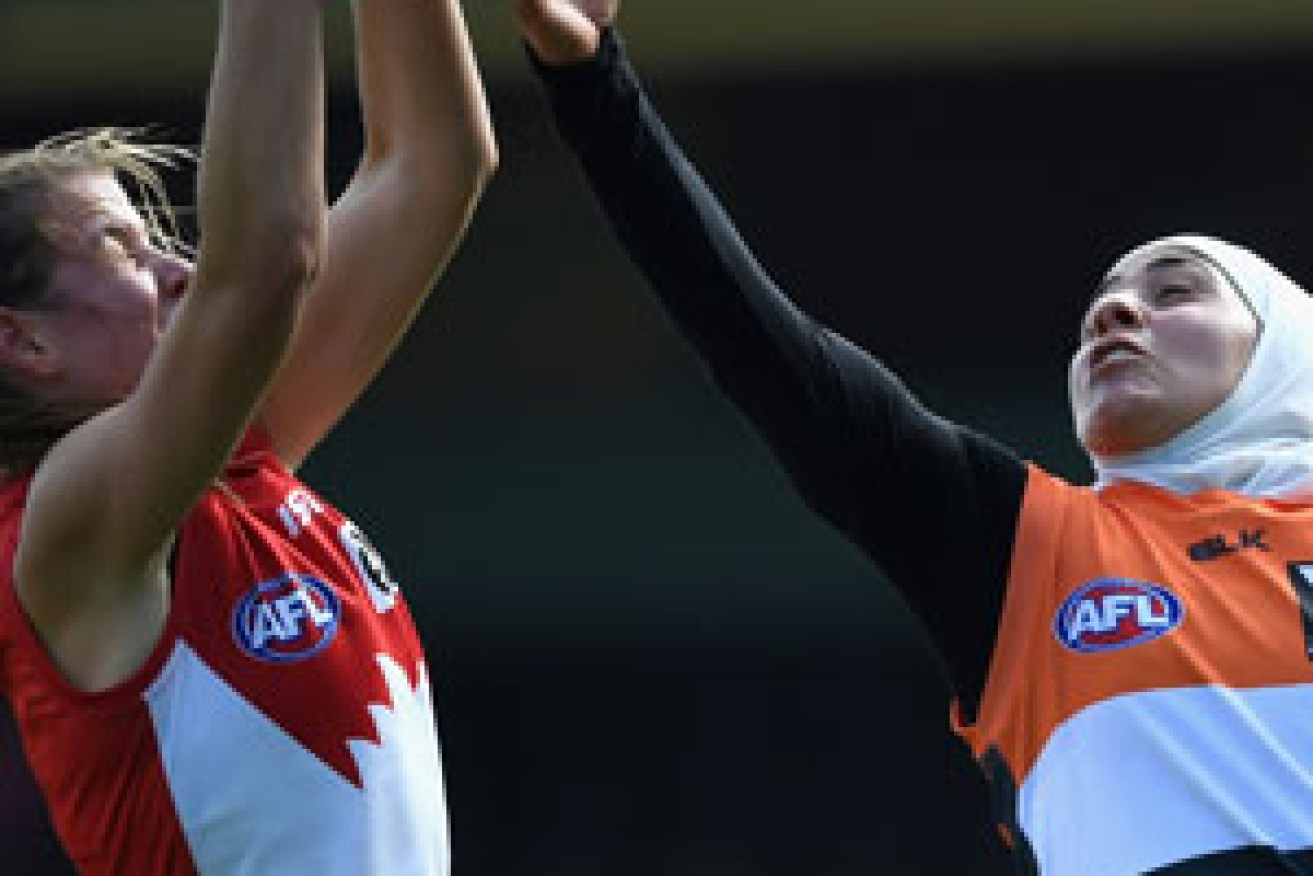
A series of exhibition matches have been played this year. Photo: Getty
When I was growing up, I was the ringleader of kick-to-kick in my street.
I could recite the A-Z of the South Australian National Football League backwards.
But all my football role models were men. Men who played for Norwood.
• ‘Keep it up’: Russian MP encourages football hooligans
• Serena Williams hits sexist heckler with tennis balls… repeatedly
• ‘I couldn’t remember winning the Melbourne Cup’: Michelle Payne’s confession
The thought of an elite women’s competition was something that never entered my head – not even fleetingly.
Playing competitive Australian Rules football was never an option for me.
The AFL’s women’s competition is a victory for women and girls who love footy, play footy, talk footy, watch footy, argue about footy, sleep, eat and breathe footy.
It’s a victory for the trailblazers who have spent decades fighting for this day and who never lost belief.
It’s a victory for equality.

Young girls like this will have heroes to look up to. Photo: Getty
The inaugural 2017 season will be made up of eight teams, it was announced on Wednesday.
Melbourne and the Western Bulldogs have been given the chance to build on their tradition of exhibition matches over the past four seasons.
Joining them are heavyweights Collingwood and Carlton, Adelaide (as part of its joint venture with AFL NT), Brisbane, Greater Western Sydney and Fremantle.
The yet-to-be-named competition will be played in February and March next year.
If equality isn’t reason enough for women to be welcomed into the fold then here are a few facts:
• Female participation in Australian football soared by 46 per cent in 2015.
• Women and girls playing the game now make up 25 per cent of all participants.
• In 2015, 163 new female football teams were established. That number rose to 250 in 2016.
The original target date for the start of the AFL women’s competition was 2020.
It was AFL CEO Gillon McLachlan who lobbied hard for it to be brought forward to 2017.
“Sometimes you have to be a bit aggressive and bold,” McLachlan told a women in football breakfast earlier this year.
On top of the gains made for women in cricket, soccer and netball, it really does feel like women’s sport is on the cusp of something special.
Gender equality in sport has even become a political football during this federal election campaign.

A series of exhibition matches have been played this year. Photo: Getty
From my experience in sport, equality is often reduced to this thing that is talked about to keep a few people quiet but never really embraced, not with conviction anyway – something decision-makers just pay lip service to.
The AFL have moved the goal posts, though, and perhaps it will make other sports consider change in this way – through the eyes of equality and not just numbers.
Girls deserve the same opportunities and pathways in sport as boys.
Female athletes should be celebrated in their own right and not constantly compared to men.
Equality should be a pillar of a decent and progressive society.
Now, girls have a pathway and strong, visible role models to guide and inspire them every step of the way.
They will see elite women footballers on television, hear them on radio, read their stories and perhaps even collect their faces on footy swap cards.
They will see them get drafted, debut, kick their first AFL goal, take mark of the year, win the competition’s best and fairest, run out on grand final day and hold the premiership cup aloft.
This is what equality should look like.
Parity won’t happen overnight but things are moving in the right direction.
At last, the conversation is shifting from why to how should we do it for women in sport.
Sport and masculinity have been romancing each other for centuries.
The game is finally changing.


